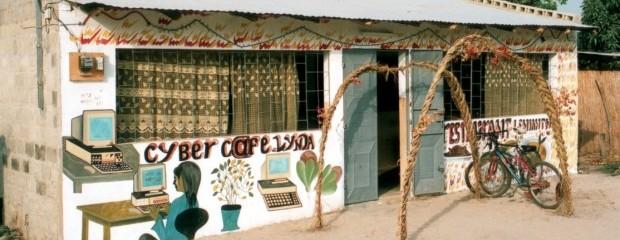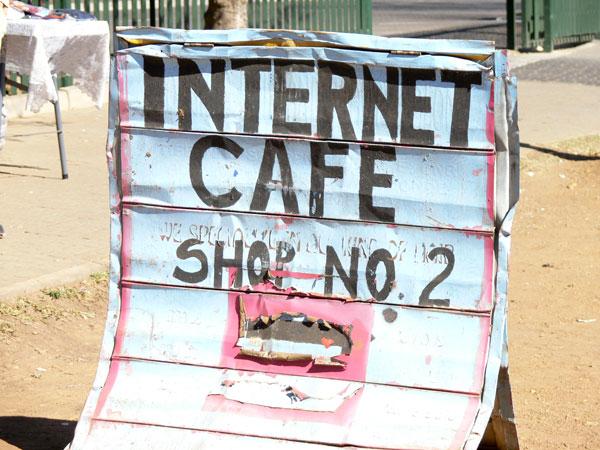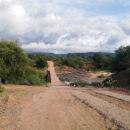‘Lions Go Digital: The Internet’s Transformative Potential in Africa’ – profile of the newest Africa report from McKinsey – By Doreen Akiyo Yomoah


The McKinsey Global Institute is positive about the potential to roll out internet access accross Africa.
The McKinsey Global Institute has released a new report entitled “˜Lions Go Digital: The Internet’s Transformative Potential in Africa‘. Optimistic about the power of internet to change Africa, the report delineates six categories where internet will have the most powerful impact: Financial services, education, health, retail, agriculture, and government. The research found that while currently, internet penetration throughout the whole continent is 16 per cent, with just 16 million people online; the report estimates that by 2025, around 50 per cent of the population will be online, with 600 million people using internet.
While the figures show a hopeful projection of what internet access will look like in a little over a decade, there are clear challenges to achieving internet access throughout the continent. For example, while the report projects that half of Africa will be online, at the moment the vast majority of internet users are in urban areas; with people in rural areas largely unable to access internet. Lohini Moodley, associate principal in McKinsey’s Johannesburg office, and one of the seven co-authors of the report, argued in an interview with African Arguments that while rural access to internet may pose a challenge, as “more and more 3G and 4G networks will get rolled out, and as people gain greater access to international bandwidth, prices will come down.” Penetration in rural areas will rise “quite simply because urban areas get saturated, operators will start rolling out networks into rural areas. It will [be] cheaper for companies to roll out 4G networks in particular in rural areas, and that will facilitate access to more and more people.”
The report focuses on the 14 countries[1] that together make up 90 per cent of Africa’s GDP; and while “All 14 countries … have singled out internet development as a priority… not all have been systematic in their approaches or successful in translating their goals into GDP impact.” In fact, although “the internet is a powerful tool for improving transparency and boosting the productivity and effectiveness of government agencies…. [Reducing] the cost and time of processing,” only 12 per cent of African governments are online.
However, Moodley notes, “Kenya, Nigeria, Morocco, and South Africa” have already shown a commitment to getting their governments online. “In Nigeria, there is an integrated financial system, connecting all the different departments.” In South Africa, “99.9% of tax returns are now filed online. That’s happened in a space of about 4 years. Once it starts to happen, it can happen very quickly.”
Education in Africa also faces significant challenges, and while “primary school enrolment is 79 per cent… there is a high dropout rate. In 2010, enrolment in secondary school was only 34 percent” and even only 7 per cent of Africans are enrolled in tertiary education. High student-teacher ratios mean that the quality of education is a concern. Increased internet availability has the power to greatly increase students’ access to information. Calling Africa “global pioneers in mobile education,” the report lists “striking innovations,” such Yoza Cellphone Stories, a South African platform for “short, interactive stories that can be accessed through a feature phone,” which has led to a 400 per cent increase of books read in schools. Worldreader provides students with Kindle tablets with pre-loaded content in nine African countries, leading to significant increases in primary school students’ reading comprehension. While these innovations exist, access to them seems to be the exception rather than the rule. Moodley says “I would definitely not say they are the rule today. It has not been systematically adopted. What you do see is that you have a number of entrepreneurs who have developed applications which students can access on their phones or computers, because they see a gap in market for learning aids.”
The report also discusses the power of internet to transform the retail and commerce. Africans’ ability to access international shopping online is limited- PayPal, a global e-commerce site that allows for payments and transfers to be made online, for example is not available in Ghana and Nigeria, two of the countries studied. Drawing on China’s e-commerce experience, Moodley argues that “A lot of people entering the middle class and are not being party to formal retail previously are moving straight from shopping informally to shopping online. The precedent has been set for shopping online.” China has set the precedent for e-commerce as a viable alternative to brick-and-mortar shops, although she also acknowledges that there are huge challenges to e-commerce in Africa, namely payment and logistics: “You wouldn’t have the “˜traditional’ e-commerce model replicated in Africa today – I mean you won’t have people shopping online and pay by credit card or PayPal and collecting their goods. What you’re starting to see more is people paying by mobile money, or people are ordering and then going and collecting at collection points. How you think about ecommerce will be very different.”
While Lions Go Digital demonstrates the power that the internet has to dramatically transform everything from governance to healthcare in Africa, there are significant challenges that need to be addressed. While optimistic, the report is not meant to be a forecast of what changes will come on the ground in Africa. “Creating this digital future for Africa will not be easy by any stretch of the imagination.” Still, Moodley says, “20 years ago no one believed mobile telephony would take off in Africa- What about people without regular access to electricity? What about the lack of disposable income? Yet, it’s had unprecedented success. The continent has already shown that where technology helps, they’re willing to adopt it.”
Doreen Akiyo Yomoah is a freelance writer currently attached to the Royal African Society.
[1] Algeria, Angola , Cameroon , Cí´te d’Ivoire ,Egypt ,Ethiopia ,Ghana ,Kenya , Morocco , Mozambique, Nigeria , Senegal, South Africa ,and Tanzania.






